St Mungo’s Learning Community Assessment and Moderation Journey

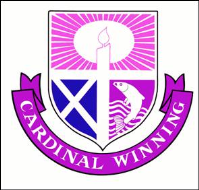
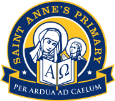
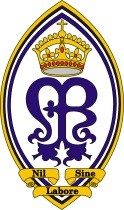
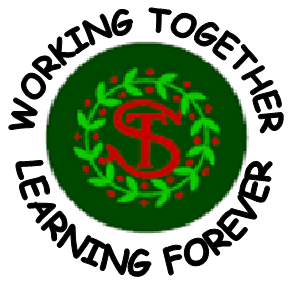
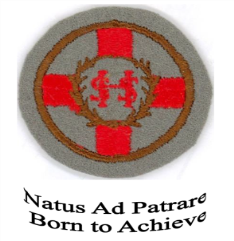

St. Mungo’s Learning Community – Assessment & Moderation Journey
Staff in the St. Mungo’s Learning Community have recognised the importance that assessment and moderation has in Curriculum for Excellence since its inception.
School Improvement group members, teachers from a variety of establishments and senior leadership team members have long spent time engaging in professional dialogue with each other in order to ensure a sharing of standards. A collegiate approach was always fundamental.
Although there are differing social and economic contexts across the learning community all staff were keen to ensure consistency of experience for the pupils in their care.
In 2011, Building the Curriculum 5 workshops took place at St. Mungo’s Academy with teachers from across the learning community, during which dialogue centred around experiences & outcomes which had been written to encourage engaging, enterprising & active learning approaches in a variety of contexts, to promote effective learning and enable personalisation and choice. During these workshops it was highlighted that curriculum planners should regularly consider opportunities to develop active learning from 3-18 and that planning should encourage participation by, as well as being responsive to, the learner who obviously would contribute to the planning process.
Insights were shared regarding teachers’ professional judgement about learner’s progress as an important feature of learning and teaching approaches and that judgements on learning should be based on evidence from a wide range of sources, both in and out of school and by reference to learner’s needs over time, across a range of activities. Staff were reminded that progress should be assessed in ways and at times appropriate to learner’s needs.
Discussion centred on how to ensure that all learners should be involved in planning & reflecting on their own learning through formative assessment, self & peer evaluation and personal learning planning.
Staff gained a clear understanding of how their own pupils were progressing in relation to others in their own establishment, our authority & nationally.
The following year in 2012, once again at St. Mungo’s Academy further sharing of standards took place during February In-service, leading to a deepened understanding of the significance of moderation across establishments. Assessment and moderation were earmarked to play a key role in driving forward city improvement. Glasgow City Council’s priorities at this time were raising attainment and achievement for all whilst working in partnership with other agencies to improve outcomes for families.
Staff from across the learning community discussed the importance of transition and inclusion across many levels within the learning community. This led to the creation of Literacy and Numeracy transition groups which ensured a sharing of standards and expectations upon pupils arriving in S1 from the feeder primaries. This increased dialogue around transitions was replicated with local nurseries which built an extremely strong learning community where shared standards were valued.
During 2012, Moderation of what an on track learner looked like took place within establishments and outwith across the learning community. Rich dialogue ensued each time teachers got together debating and critiquing quality, quantity and appropriacy of evidence. Staff from St. Mungo’s Academy and the associated primaries were consistently reminded that assessment was not stand alone and that it was imperative that assessment was an integral part of the planning process.
Literacy and Numeracy transition groups led to all practitioners having a clear understanding of applying and sharing standards. St. Mungo’s learning community created a plan for quality assurance and moderation activities. This plan would support the good practice already taking place within the learning community and signpost further support and CLPL. The overwhelming feedback coming from teaching staff was that secondary colleagues valued coming to visit primary schools to see the excellent work being completed in preparation for high school and that primary colleagues absolutely valued visiting secondary establishments to observe pedagogy and practice. The joint planning taking place ensured shared standards, continuity for pupils and effective transition.
A shared St. Mungo’s transition profile for pupils arriving in August 2012 was created handing over the responsibility to the young people to ensure they could confidently describe themselves as learners and speak positively about themselves as citizens in preparation of their arrival at their new establishment.
Throughout 2013 and 2014, the literacy and numeracy transition groups continued to work; meeting after school sharing plans, creating transition projects and ensuring P6, P7, S1 and S2 teachers had as much time to discuss curricular aspects and expectations as possible. This subsequently led to sharing of whole school overviews to ensure coverage of experiences and outcomes and led to creation of similar groups focussing on Social Subjects, Science and Modern Languages in the Primary School. Unlike the transition focus groups it was no longer P6 and P7 teachers from the primaries taking part, now teachers from all stages met to moderate and share standards with colleagues from across the learning community including our nursery colleagues as well as colleagues from Cardinal Winning Secondary School. Increased dialogue across establishments led to improvements in position statements and policies which were also moderated.
In 2015, teachers met after school at St. Mungo’s to moderate pedagogy and assessment in relation to Technology. Feedback from teachers indicated staff were keen to upskill themselves in the delivery of technology lessons therefore focus groups were set up to meet after school to discuss and moderate the design process, lesson planning, outcomes, assessments and the application of skills.
In 2016, the learning community moderation model changed from the typical monthly after school meetings with a curricular focus to a model with greater relevance and more immediate impact upon staff. A model similar to that of Improving Our Classrooms was deployed. Staff were extremely appreciative at the opportunity to come and observe the professional craft of their colleagues from across the learning community during the school day. High level professional dialogue continued to be entered into as the lessons took place. Lessons focussed on Writing. Each year, before the trios teachers were working in were announced, Depute Head Teachers delivered a presentation on the benefits of moderation for teachers and pupils. It was of significant importance that all learning community colleagues received the same message in relation to moderation in order to enhance pedagogy and encourage self-reflection.
It was perceived as an excellent development opportunity for each individual teacher to see how a colleague teaches children at the same stage. Observing how another professional sets learning intentions and success criteria, how he/she promotes positive behaviour, how they develop ideas in their pupils, how they raise standards and support the needs of all learners.
What a positive impact this had on staff. Teachers were selected in trios and observed each other teach at a date / time in the remainder of the term which suited the trio. The Depute Head Teachers in each establishment catered for the cover of classes to allow teachers from across the learning community to visit neighbouring establishments.
This initially was perceived as a daunting task for the teacher who was “hosting” however the increased confidence, increased dialogue and increased wisdom coming from all three professionals in the trio assisted them in their attempts to close the gap and to make the marginal gains as they aim to get it right for their children.
Feedback indicated that the moderation exercise in trios improved teacher knowledge of pupil attainment, how best to support pupils with ASN and highlighted external partnership working.
To complete the circle, trio colleagues met once after school to share the assessment evidence which emanated from the lesson taught. Many trios continued to email the other teachers with regards to hyperlinks to further reading, work on interdisciplinary learning or how best to cater for the gender gap. Teachers have found liaising with teachers from out with their establishment very beneficial and at times has provided a different perspective on pedagogy.
This continued partnership was indication of how successful these groups have been.
The model has ensured shared practice, supported changes in practice and facilitated developed relationships within the learning community. Staff were extremely co-operative and flexible throughout the process.
In 2018, the moderation taking place in the St. Mungo’s Learning Community evolved by deploying paperwork created by the West Partnership for lesson planning and to critique whether the evidence gathered had led to the young person achieving success during the lesson. Lessons this year focussed on Numeracy. With the vast majority of teachers in the learning community having been through the process the previous year most colleagues continued on their learning journey with new staff to moderate with. Year on year, staff were taking part in conversations with a deeper understanding of the benchmarks and greater confidence in their own professional judgement. Year on year, senior leadership members were keen to respond to feedback from teachers to ensure best practice continues. In April 2018, staff in their trios were asked to moderate anonymous teachers work from out with their trio to determine if pupils had achieved success, however, during the evaluation process staff informed that this was simply a verification exercise and having not observed the lesson taking place it was difficult to scrutinise pupil evidence and assessment work in any great detail.
The further evolution of this journey led us to the current model of 2019 where teachers continue to moderate using West Partnership paperwork. Teachers have a deeper understanding of the benchmarks, increased confidence in conducting moderation dialogue, deepening understanding of how to present evidence to indicate that their children have achieved and are able to ask difficult questions of their trio colleagues in terms of differentiation, learning styles and choices pertaining to pedagogy and assessment. Rather than verifying anonymous lessons as they did in 2018, teachers in April 2020 moderated trio colleagues lessons, plans and assessment evidence with each other having observed each other’s lessons.
In the academic year 2019 – 2020, during our Depute Head Teacher’s initial presentation to staff, Glasgow City Council’s Moderation and Assessment document 2019 – 2020 was showcased to staff. This publication explained how the process of moderation supports raising standards, expectations and levels of consistency between practitioners and across establishments. Whilst also commenting that assessment of a learner’s progress should include a range of evidence on what they learn and achieve throughout their school career whilst providing a summary of Education Services Moderation Framework August 2019 – June 2020.
The impact upon the children is always foremost in our minds and when teachers become more aware of the standards, benchmarks, literature surrounding moderation and have greater confidence in their own professional judgement all pupils benefit. Pupils benefit from the sharing of best practice having a positive impact on their teachers who can then replicate this best practice in the classroom. Pupils benefit from having their voice heard through the planning and implementation stage as well as being exposed to high quality assessments which allow them to showcase their successes across new and familiar contexts. This triangulation of evidence can be used to measure impact.
As with every educational journey the staff and senior leaders in the St. Mungo’s Learning Community continue to strive for success. As always, we shall react to comments made in evaluations, liaise with colleagues in the West Partnership and look forward to engaging further in moderation events in order to continue to develop teacher knowledge related to curriculum and assessment while ensuring a shared understanding of standards and expectations across our Learning Community.

